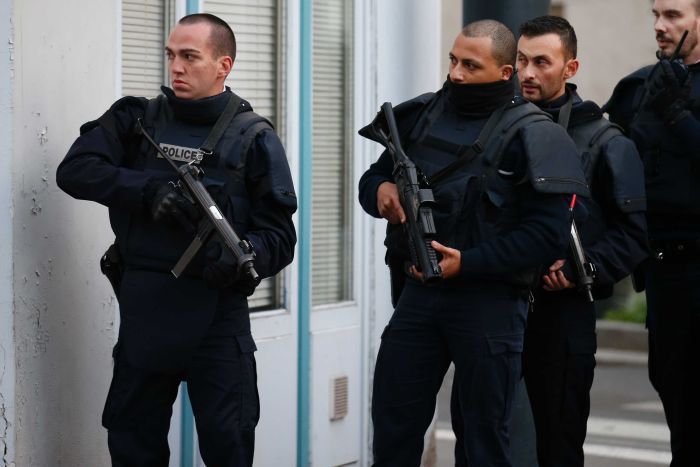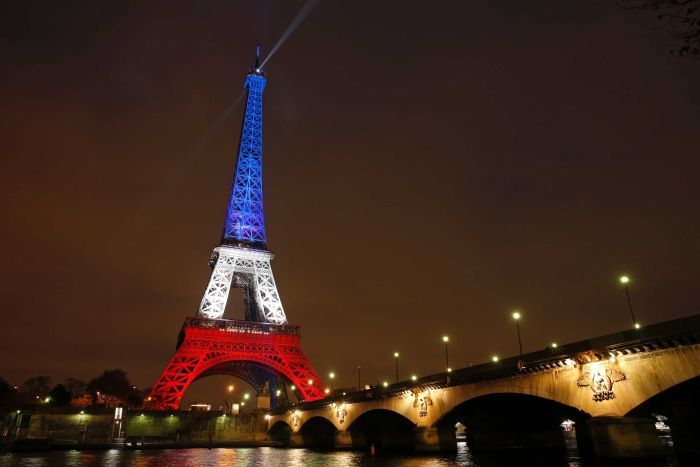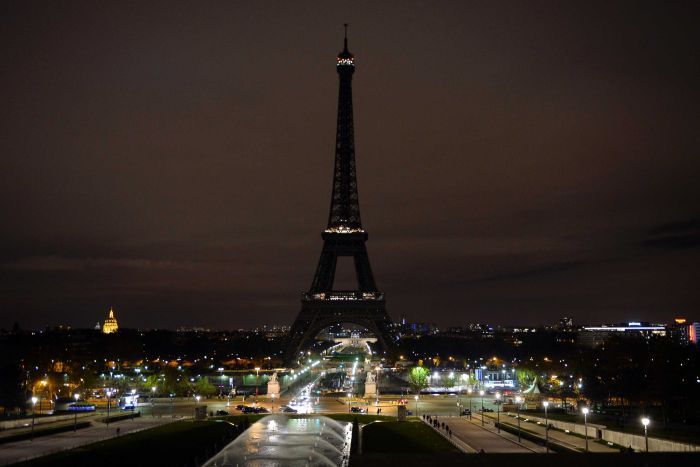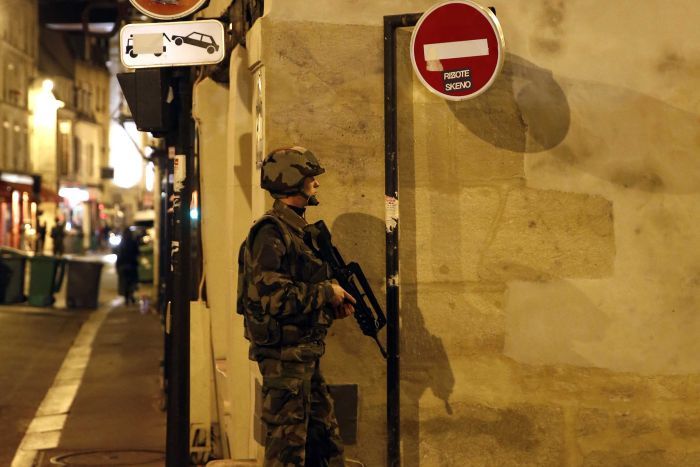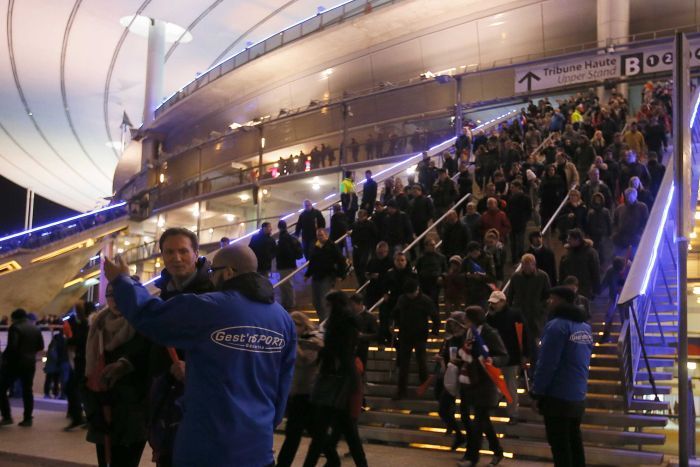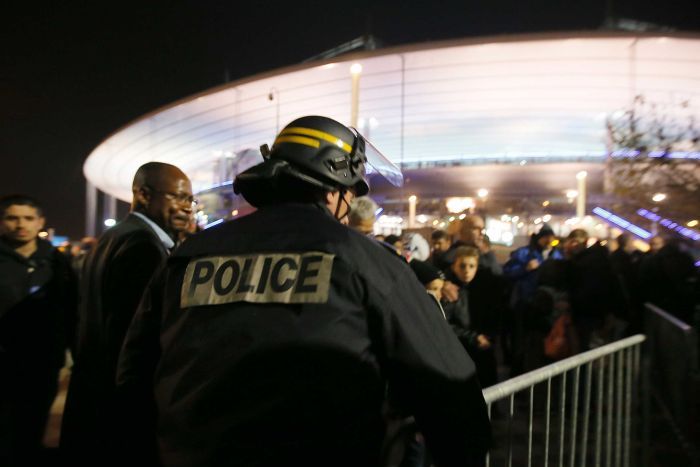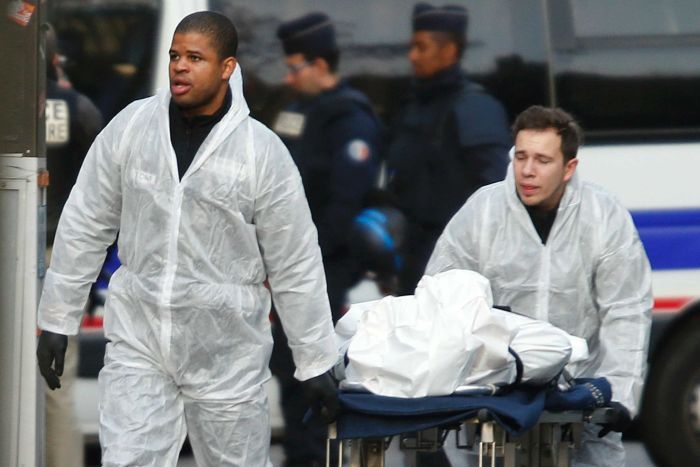Captagon: Evidence Paris attackers used 'jihadist's drug' favoured by Islamic State fighters
Updated
 Photo:
Captagon was originally developed to treat hyperactivity and depression, but has become popular with violent extremists due to its ability to suppress fear and hunger. (Reuters: Nikolay Doychinov)
Photo:
Captagon was originally developed to treat hyperactivity and depression, but has become popular with violent extremists due to its ability to suppress fear and hunger. (Reuters: Nikolay Doychinov)
Is it possible to slaughter dozens of innocent people without batting an eyelid, without feeling the slightest remorse?
Survivors of the Paris attacks have described some of the gunmen as "zombie-like", even serene, as they pulled their triggers and killed as many people as they could.
French media are reporting evidence that the attackers were high on a drug that is found almost exclusively in the Middle East, and increasingly used by Islamic State fighters.
It's been dubbed the "jihadist's drug" because of its ability to mask pain, fear and hunger, and keep fighters awake, calm and alert for long stretches.
I saw a man who was peaceful, composed, with a face that was almost serene, contemplative, advance towards the bar. He sprayed the terrace [with bullets] as anyone else would spray their lawn with a garden hose.
Paris attacks survivor
Captagon — a synthetic amphetamine-based pill — is considered the drug of choice for Islamic State fighters in Syria, Iraq and, now it seems, Paris.
When French police raided a hotel room at Alfortville, south-east of Paris, last week they found a stash of syringes, needles and plastic tubing.
The Appart'City hotel at Alfortville is where the so-called eighth attacker Salah Abdeslam had allegedly rented two rooms for several days in the lead-up to the attacks.
Forensic tests have yet to confirm the nature of the chemicals found, and police have not ruled out the possibility they were explosive chemicals used to prepare suicide vests for the attacks.
But French media reports say there is increasing evidence the Paris attackers may have taken Captagon to prepare themselves in the hours before the November 13 attacks.
Several witnesses who survived the attacks have described the gunmen as being in a "zombie-like" state, as if stupefied by drugs.
 Photo:
Attack survivors described the gunmen as calm and serene as they shot dozens dead. (Reuters: Christian Hartmann)
Photo:
Attack survivors described the gunmen as calm and serene as they shot dozens dead. (Reuters: Christian Hartmann)
"I saw a man shoot," one witness told French television station M6.
"I saw a man who was peaceful, composed, with a face that was almost serene, contemplative, advance towards the bar.
"He sprayed the terrace [with bullets] as anyone else would spray their lawn with a garden hose."
"They were like zombies," said another witness who'd watched several gunmen parked in a black VW Polo outside a restaurant, shortly before the killings began.
"It's as if they were drugged."
Captagon originally used to treat hyperactivity, depression
Captagon was originally produced in the West in the 1960s to treat conditions such as hyperactivity and depression. But it was later banned in most countries because of its addictive nature.
Now it is overwhelmingly found in the Middle East, particularly Syria, where its production and use has soared since the start of the country's civil war.
It contains the stimulant fenethylline, which is metabolised by the liver to produce amphetamine and theophylline, which travel through the bloodstream to the brain and act as a stimulant.
Drug experts, traders and local activists say Syrian production of Captagon accelerated in 2013, outpacing production in other countries in the region such as Lebanon, according to a report by the Reuters news agency.
Syrian government forces and rebel groups last year accused each other of using Captagon to endure protracted engagements without sleep, while clinicians said ordinary Syrians were also increasingly using the pills, which sell for between $5 and $20.
We would leave the prisoners for about 48 hours without questioning them while the effects of Captagon wore off, and then interrogation would become easier.
Syrian drug control officer
As well as helping combatants dig in for long stretches of fighting, reports of seizures and interviews with people connected to the trade suggest the production of Captagon also generates hundreds of millions of dollars in annual revenues in Syria, and potentially funds the purchase of weapons.
Khabib Ammar, a Damascus-based media activist, told the Reuters news agency last year that Syrian fighters involved with the drugs trade were buying weapons with the money they made.
Although Reuters could not verify whether Captagon profits were helping to fund either side of the conflict.
The UN Office of Drugs and Crime says consumption of Captagon is negligible outside the Middle East but a significant drug in the Arab Gulf. Syria has long been a key transit point.
"Trafficking of the amphetamine Captagon from Syria into Turkey may be increasing as indicated by a seizure of 4.2 million Captagon tablets in April 2013," the report said.
Lebanese authorities also report Syria's increasing role in the trade.
'We would beat them, and they wouldn't feel any pain'
 Photo:
Experts think Captagon use could explain why Islamic State fighters are so barbaric. (Reuters)
Photo:
Experts think Captagon use could explain why Islamic State fighters are so barbaric. (Reuters)
Colonel Ghassan Chamseddine, head of Lebanon's drug enforcement unit, told Reuters the pills are hidden in trucks passing from Syria to Lebanese ports where they are then shipped to the Gulf.
"It comes from Syria. Most of the Captagon production is there, according to our information," he said.
Official figures show Lebanon seized more than 12.3 million Captagon pills in 2013. Colonel Chamseddine said most of that came from a few large busts in the Bekaa Valley, which borders Syria.
One seizure of 5.3 million pills implicated a Syrian family that he said had been smuggling drugs for 10 years.
Syrian state media regularly mention Captagon pills as one of the items government forces seize alongside weapons when they capture rebel fighters or raid their bases.
A drug control officer in the central city of Homs told Reuters he had observed the effects of Captagon on protesters and fighters held for questioning.
"We would beat them, and they wouldn't feel the pain. Many of them would laugh while we were dealing them heavy blows," he said.
"We would leave the prisoners for about 48 hours without questioning them while the effects of Captagon wore off, and then interrogation would become easier."
Drug use could explain extreme barbarity of jihadists
Just last month a Saudi prince was arrested at Beirut's airport, bound for Saudi Arabia, accused of trying to smuggle two tonnes of Captagon pills on his private jet. It is alleged he was transporting the drug to sell to militant groups in Syria.
Islamic State fighters are not the only combatants known to use Captagon.
Seifeddine Rezgui, the Tunisian attacker who killed 38 people on a beach at Sousse in June 2015, was suspected of taking a Captagon pill before the shooting.
Israel's International Institute for Counter-Terrorism (IICT) says the use of Captagon, coupled with religious jihadist radicalism, could explain the extreme barbarity of IS operatives.
But Islamic State is not the only extreme Islamist group that uses Captagon.
The IICT claims Hezbollah, the Lebanon-based Shiite militia group, is also a major and growing manufacturer and supplier of the drug, with Iranian assistance and guidance, as a means to "finance the organisation's activities and amass a fortune".
"The Hezbollah leaders and operatives involved in the manufacture and distribution of Captagon have even absolved themselves of any moral, legal, or religious responsibility by claiming that such activity does not fall within the definition of drug trafficking and is legitimate marketing of medications," the IICT claimed in a report published last week.
"In this context, Sheikh Mohamad Yazbek, Hezbollah's spiritual leader in the Beka'a Valley region and a member of the group's Supreme Shura Council, published a fatwa allowing the production and sale of counterfeit Captagon tablets on condition that they not be used by members of the Shiite community.
"The first machines for producing Captagon were sent to Hezbollah operatives in Lebanon in 2006 at the end of the second Lebanon war by Iran's Revolutionary Guards.
"Since then, the phenomenon has spread, and Captagon production laboratories have been built in various villages in the Beka'a Valley, Beirut, and northern Lebanon."
The IICT report says sales of Captagon in the Middle East have continued to expand, as "Hezbollah has strengthened its cooperation with Syrian, Lebanese, Saudi and Palestinian drug dealers".
ABC/Reuters
Topics: terrorism, drug-offences, law-crime-and-justice, france, syrian-arab-republic, lebanon
First posted







